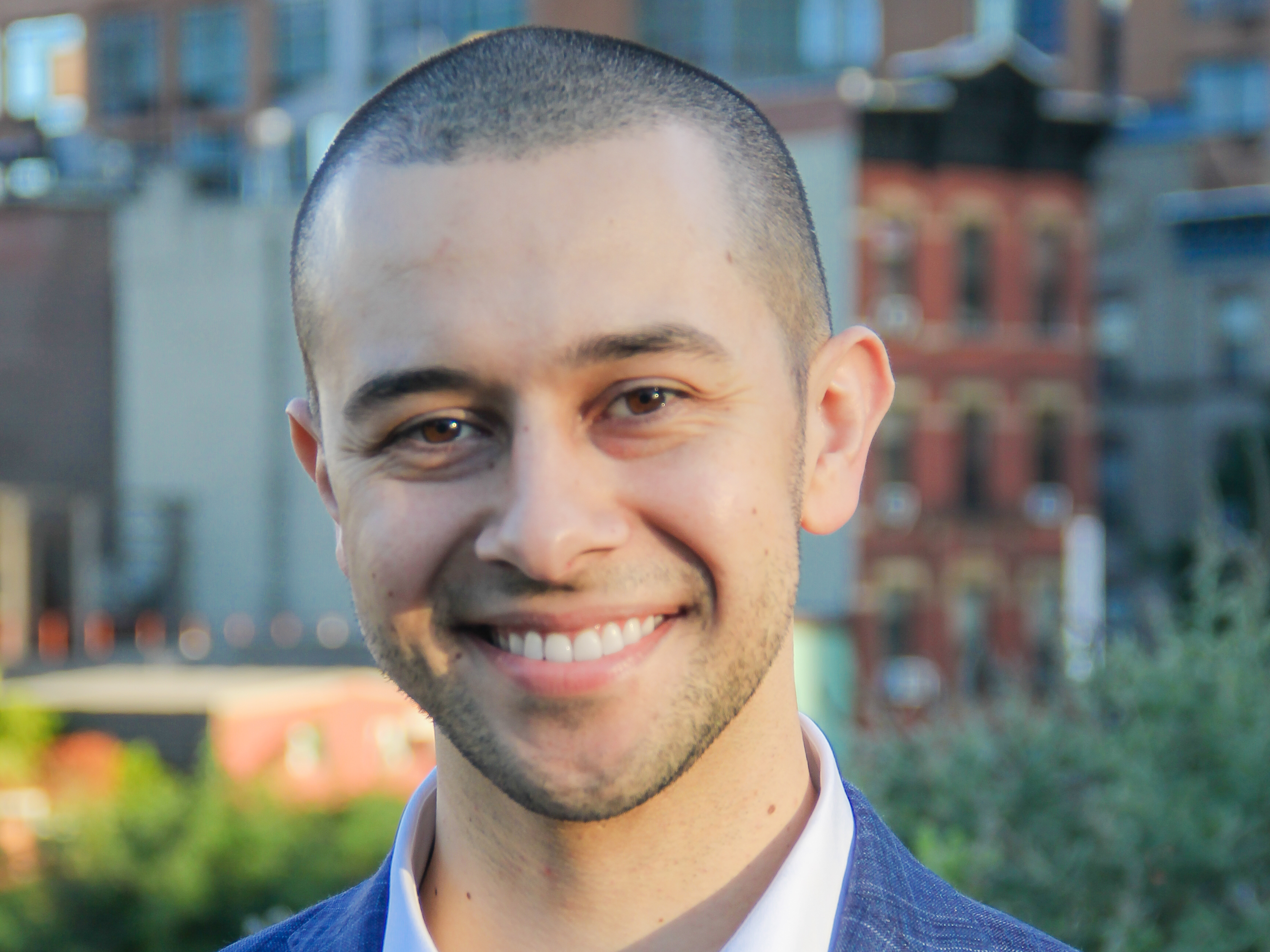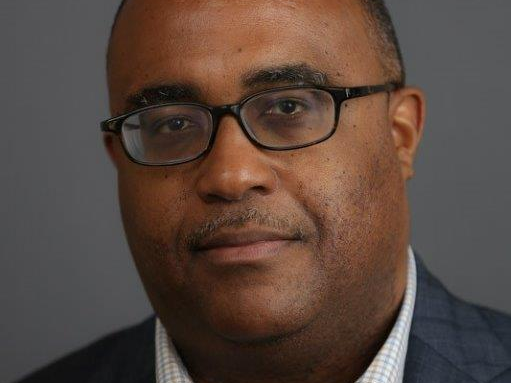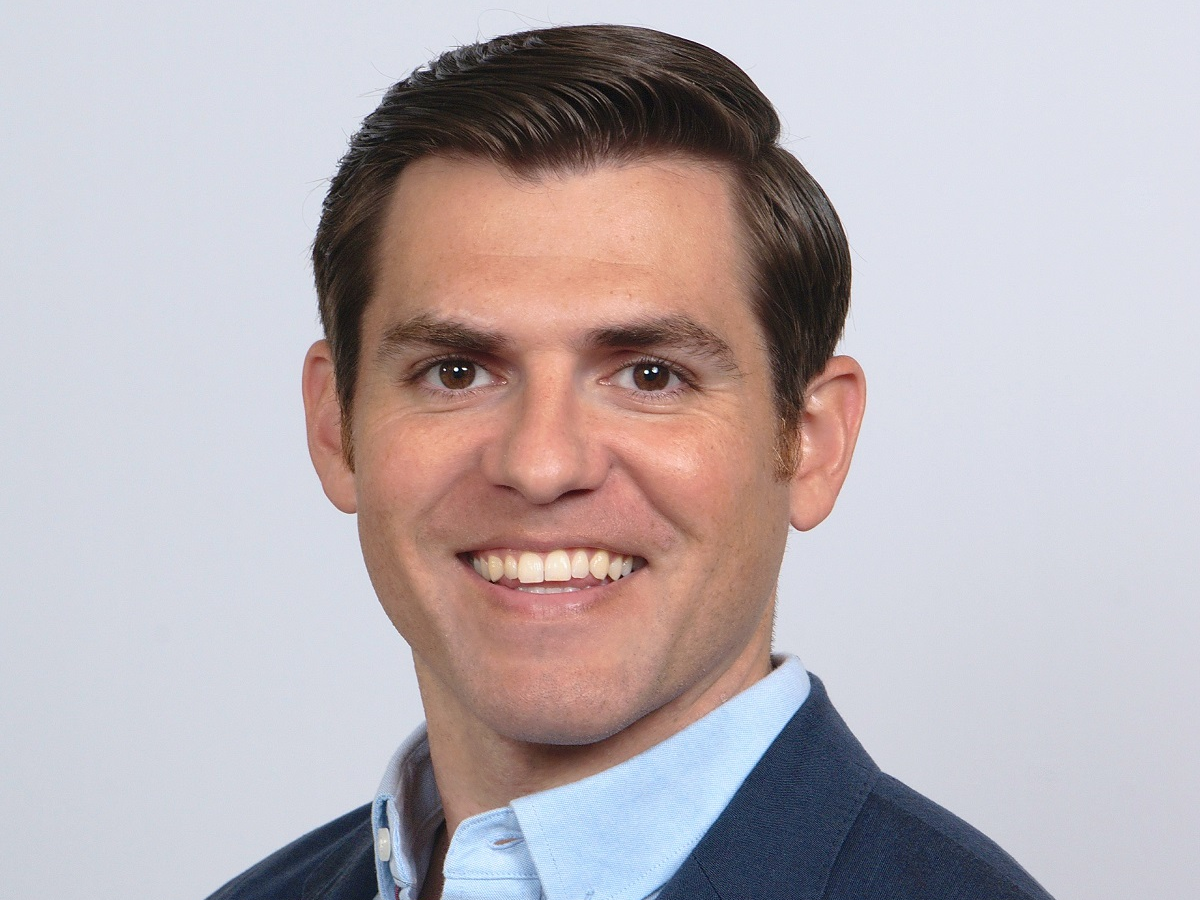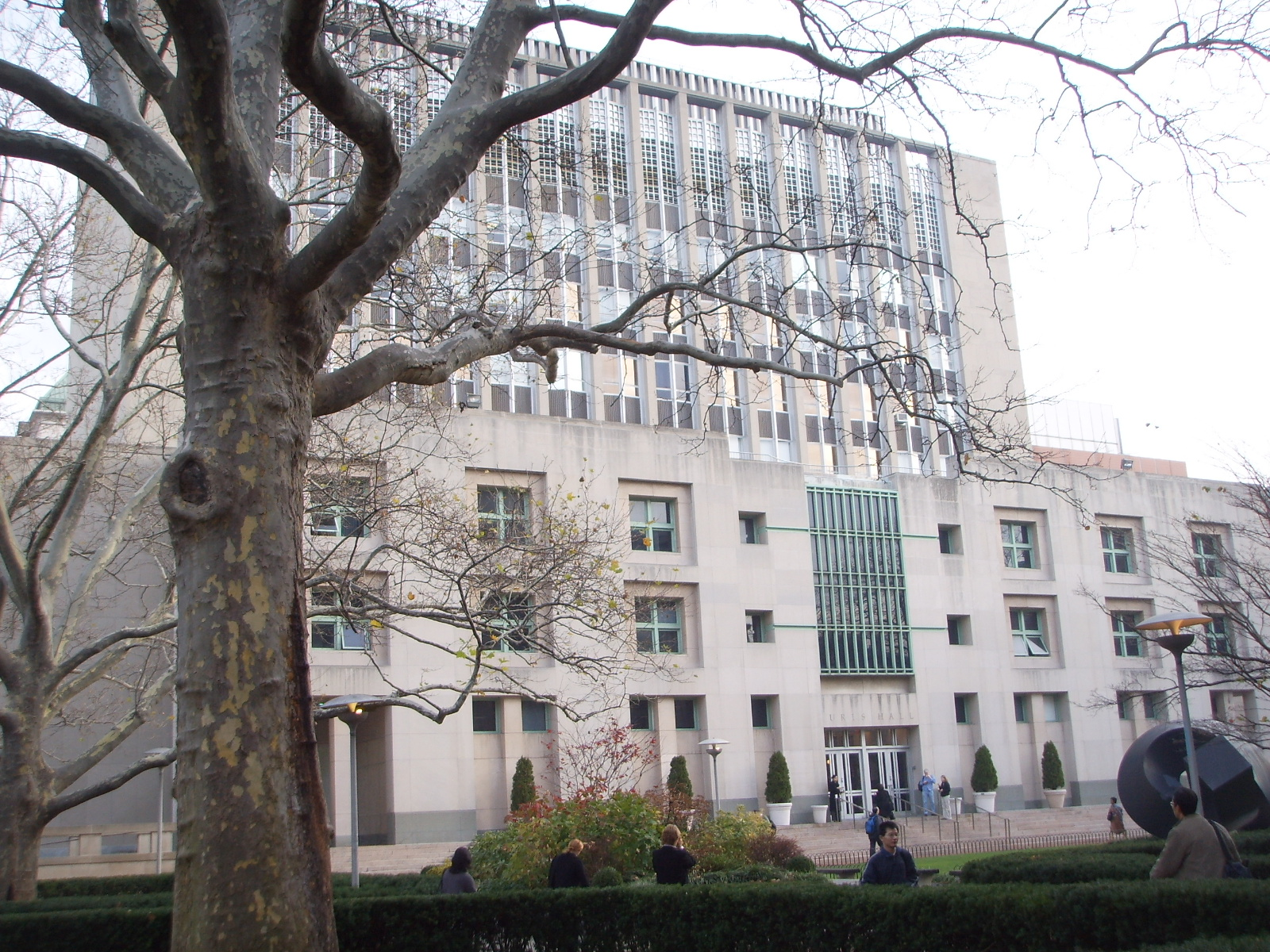- Michael Robinson, the director of admissions at Columbia Business School, and three of the school’s alumni spoke with Business Insider about what makes for an ideal MBA candidate.
- Columbia Business School is looking for someone who’s not only highly passionate about and connected to the Columbia community, but someone who also shows incredible leadership potential.
- And, Robinson said, you want to avoid the most common mistake people make when applying: not tailoring their application.
- Visit Business Insider’s homepage for more stories.
When Stephanie McCalmon was considering MBA programs, Columbia Business School wasn’t originally on her list. A born and bred New Yorker, McCalmon thought of grad school as an opportunity to take a short detour from her hometown. But the more research she did, the more she realized that as a media and advertising executive climbing the ladder at publishing powerhouses, the uptown Ivy offered the kind of curriculum, mentorship, and community that matched her aspirations.
“My Columbia application was my best application ever,” McCalmon told Business Insider. She spent months perfecting her essays, spoke with countless members of the Columbia community, and meticulously prepared for interviews. But in the end, she believed that it was the fact that she knew exactly what she wanted out of the experience that helped her land a coveted spot in the Columbia Business School class of 2019: “They want to know how you are going to show up at the school,” McCalmon said.
Michael Robinson, the director of admissions at Columbia Business School, affirmed that point during a recent interview with Business Insider. “In the end, we want people who are going to add value to our community, and you can’t really add value without knowing the community, taking the time to immerse yourself, and asking: ‘Is this the right thing for me, given what I want to do?'” he said.
Remembering his own application process, Steve Guerrini, class of 2015, explained that he would advise anyone considering Columbia to really understand what the school is all about and the community on campus. “Even if you have an amazing GMAT score, I’m sure admissions can tell when someone puts together a formulaic application,” he said. But you have to think to yourself, he added: “How am I speaking the language of the school? How do I use the same words and really reflect the community? Everything has to be personal about this, when you think about how much it changes your professional life and network.”

Courtesy of Steve Guerrini
Of course, if you’re contemplating business school in the first place, excellence is likely a key criterion: Columbia Business School is ranked No. 6 in terms of top business schools by US News and World Report and No. 7 by Bloomberg Businessweek, and 94% of the class of 2018 received job offers within three months of graduation.
According to education specialists Quacquarelli Symonds' 2020 Global MBA Ranking, evaluating more than 240 of the best business schools in the world, Columbia ranks No. 11. Their research suggested that Columbia grads earn an average salary of $120,000 to $130,000 post business school.
Read on to learn more about the best way to go about applying to Columbia Business School - and how to avoid the most common errors candidates make year after year.
Show leadership potential and engagement with the Columbia community
Robinson has been a member of the Columbia Business School community for nearly 20 years, initially as a student before becoming an administrator. In all that time, he said, the characteristics of good candidates have remained consistent: "We're looking for the kind of person who has the potential to be an impactful, transformational leader," he said.
Admissions admittedly doesn't have a crystal ball for spotting these people, but they have developed some telling criteria. For example, Robinson said, if a candidate was brought into a firm with a cohort, they'd ask: Were they promoted faster than their peers? Were they given more key assignments and high-profile projects from senior leaders? Do they work well in a team-focused environment?
"When I read your recommendation - it's from an expert practitioner who is your boss - does that person say: 'I've been in this space for 10 to 20 years, this is why I think she has the potential to be a leader in the future because this is what I've seen her do'?" he said. You want to have galvanized support through a consistent demonstration of skills while standing out as a star.

Courtesy of Michael Robinson
Another aspect of a successful application has to do with engagement with the Columbia community: Knowing the school and having a clear sense of why they want to be there, as McCalmon did, are key. Students might build that relationship with Columbia in person, or, in the case of international applicants, the process may happen online. "They're on the virtual platform. They're engaging with people on the team. They're watching webinars, sending emails to our admissions ambassadors," Robinson said of the ideal candidate, encouraging potential students to dig into the school's MBA YouTube page.
Don't underestimate the value of making connections within the community during the application process, either. "By the time I was applying to CBS, I'd gone to a number of events, met with admissions officers, spoken to current students and alums, so I knew how to map my career to date and interests onto what I wanted to get from and contribute to CBS across academics, career, and community," McCalmon said. By the time she arrived on campus, she had already made connections - a factor that helped her hit the ground running.
Remember that test scores aren't everything - seriously
The enrolled class at Columbia Business School has a median GMAT score of around 730. But, according to Robinson, there are people in the class every year whose scores fall in the 500s, and there's room for the fact that some people just test poorly because of anxiety or other mitigating factors, including access to prep resources. (At the same time, he encouraged those wondering how they compare with the current and past student bodies to dig into Columbia's class profiles. "If the school has never admitted someone who had a GPA in the 1.0s, that might be tough," he said.)
"Many people think you have to have the perfect application. But CBS means it when they say they look at applicants holistically," Brad Boone, class of 2020, added. He first started considering business school while waiting to receive final clearance from the military. Originally, he struggled to find a program that stood out before speaking with another veteran who was at Columbia at the time. Connecting with her helped him realize it was the right place for him.
This isn't to say that scores don't matter at all - or that prepping for the GMAT is something applicants can afford to take lightly. "Definitely [don't] underestimate the challenge - especially the math component," Guerrini said. "That part is really competitive. It's something people need to spend a lot of time on."

Courtesy of Brad Boone
The bottom line, Robinson said, is that "because our school is very global, context matters." One key question that goes into evaluating potential students is: "Do we have real evidence that this person is going to be okay in the classroom?" Another is: "Does this person have the potential to be an impactful leader going forward?"
If you tend to test badly, consider taking the Executive Assessment exam, a variation on the GMAT. Reach out to an admissions adviser early on in the process to discuss your specific questions and concerns about your application - that's what they are there for. "Look at all the options so that when you apply, you're applying with your best self," Robinson said.
Prepare for a lengthy process and capitalize on rolling admissions
When you think of "cramming," the time span of three months probably doesn't leap to mind - but Robinson said that was the minimum amount of time to set aside for the process.
"The majority of candidates on the shorter side [take] about six months to 18 months, up to two years" to prepare to apply to Columbia (or any business school for that matter), he said. If it's more of an issue of, "What school do I choose?" rather than, "Should I even do this?" the trajectory can be shorter. "But if you're starting from scratch, I would recommend nine months to a year," he said.
It's also important to understand the decision process itself, which differs depending on the school. "Columbia has a rolling admissions, which means we read and review applications in the order that we get them - so, all things being equal, the earlier one applies, the better [their] chance," Robinson said. If someone with a weak element on their profile wanted to maximize their chances of being admitted, Robinson would also encourage that person to at least explore early admission: "That's when we have the most space possible, and when we're willing to take a risk, because it's wide open."
Understand what financial support Columbia offers
While students finance their MBAs in a variety of ways, including loans, corporate sponsorship, and scholarships, Robinson said Columbia awarded funding from two buckets.
The first is merit-based and controlled by admissions, which looks at criteria that includes both academic and leadership potential. The people who receive this funding are "like the stars within the stars," Robinson said. They're also on top of deadlines: Applications are due in January.
Need-based awards are controlled by the financial-aid office and based on your tax information. "Your goal is to maximize the merit piece and the need-based piece so you're using less of your own savings and loans to pay for those things," Robinson said.
For McCalmon, financial aid was paramount. "I wouldn't have been able to attend school without it," she said, adding that she ended up receiving both merit- and need-based scholarships to attend Columbia.
Avoid the mistake candidates make every single year
"We really want people who have been thoughtful, who know themselves, who have done the real research and due diligence," Robinson said. The most common mistake he sees, year after year, is easily avoided.
"Say someone has a top-choice school, and they say to themselves: All the big schools in the top 10 are the same, so I'm going to force my essays for school A into school B in order to be efficient," Robinson said. "Every single year, we have a number of essays that may have passed spell check but have another school instead of [Columbia] written as where they really wanted to go."
The lesson? If you really want to stand out, tailor your materials to Columbia specifically and watch out for minor errors that give away your lack of hard work.
And if at first you don't succeed, try again
Rejection: It's a bummer. But not getting in once doesn't mean that you're out of the game for good.
"So many people outside the process think it's a simple, binary thing, but it's really hard" to get into business school, Robinson said. "The majority of people who apply are qualified to be in the program. If we admitted them, they would pass all the classes, do well, get a great job post-MBA. Sometimes it's just a matter of space and time." In other words: If Columbia is really the place for you, maybe next time you'll have a greater shot of getting in. You don't know until you try.
This article was originally published on Business Insider September 26, 2019.

